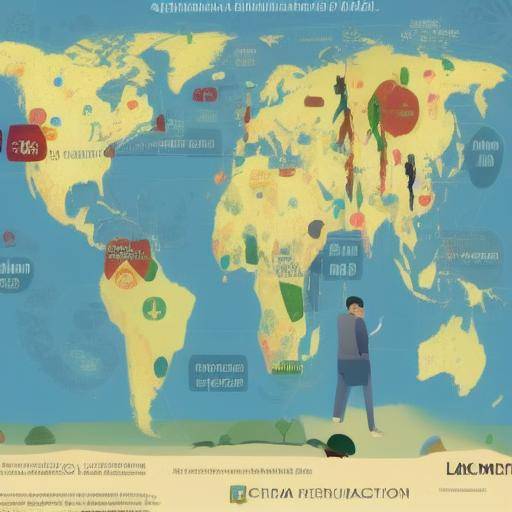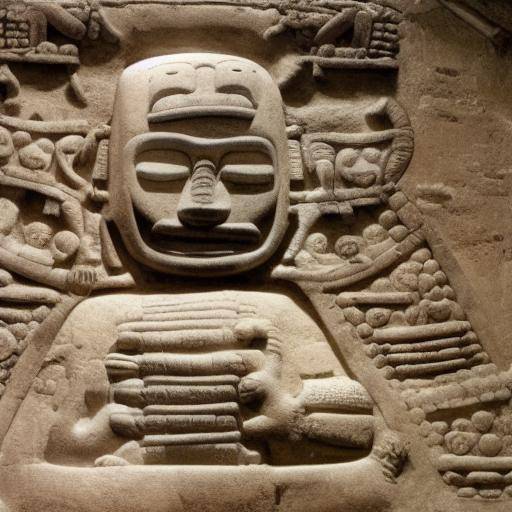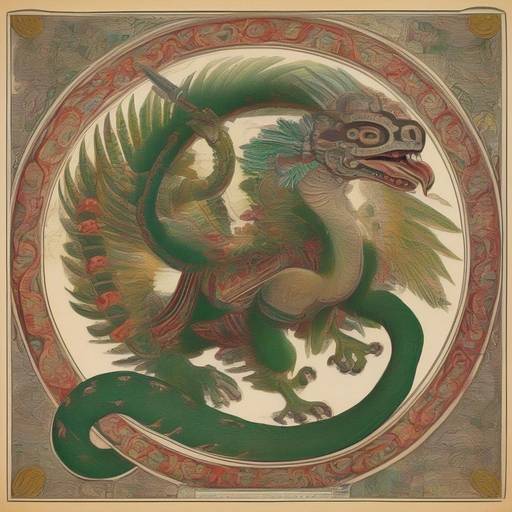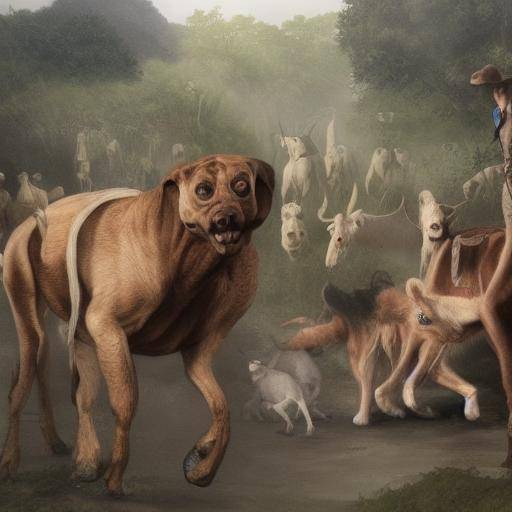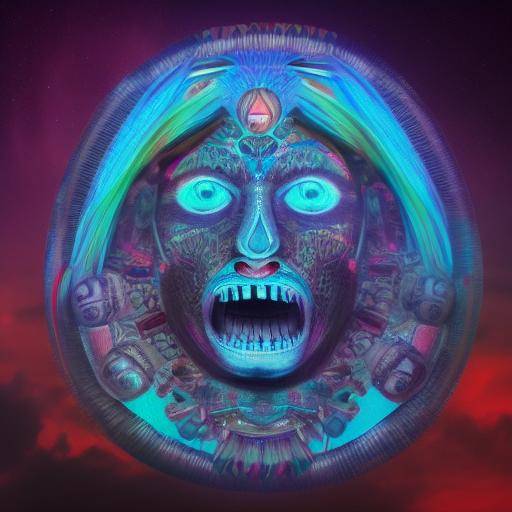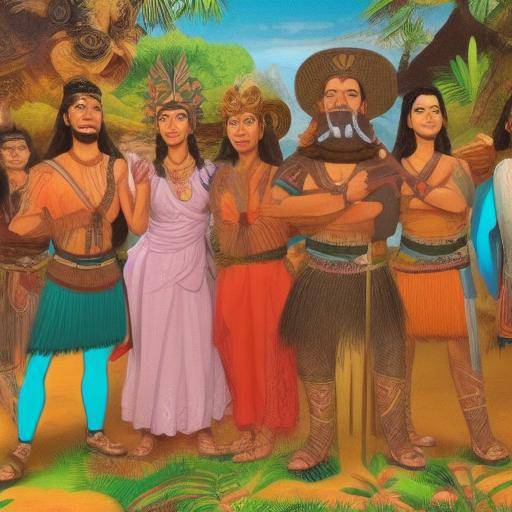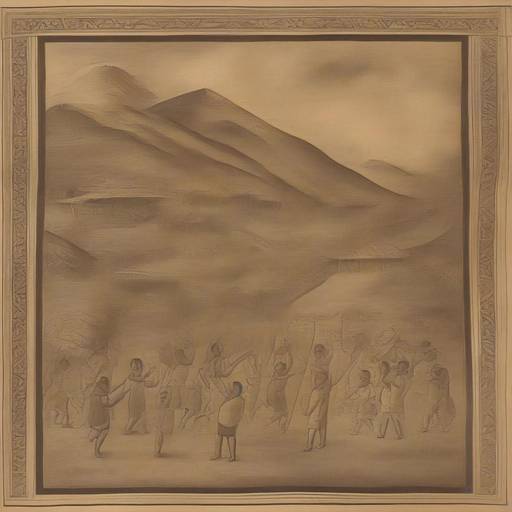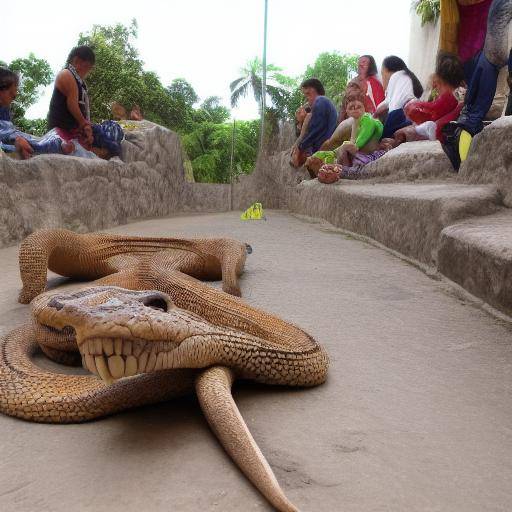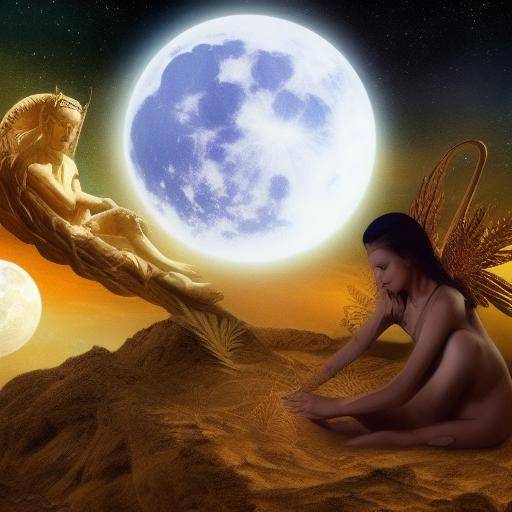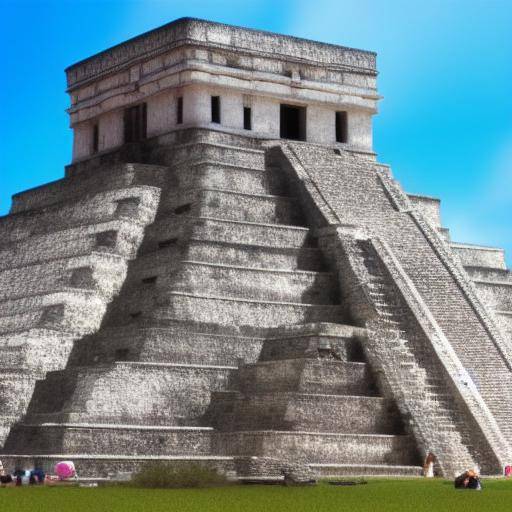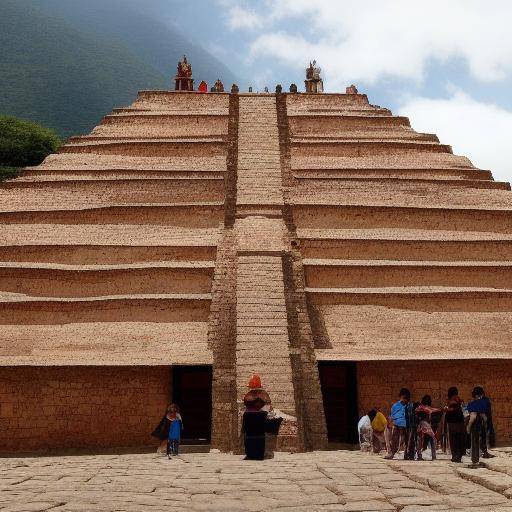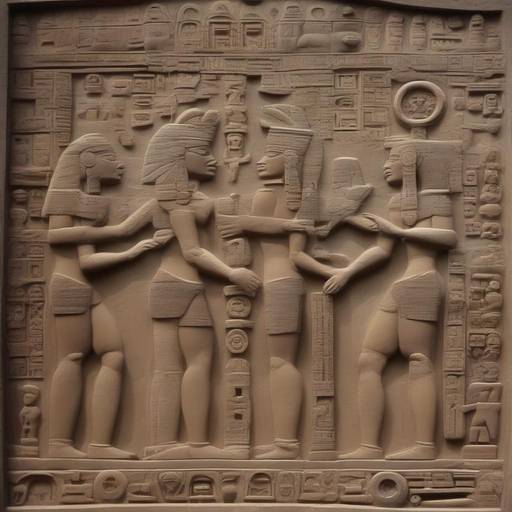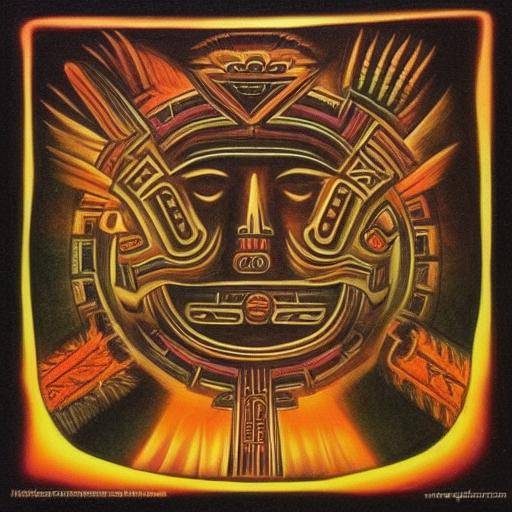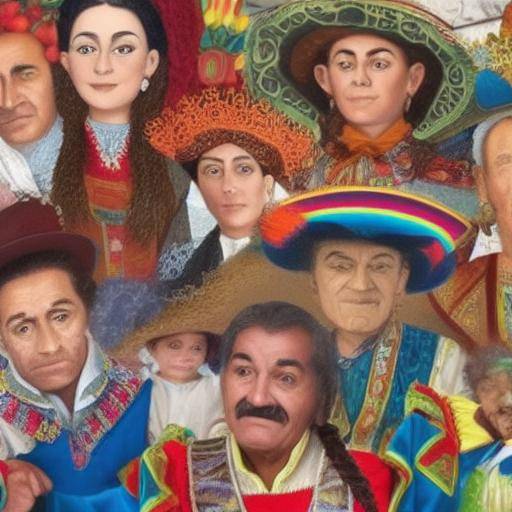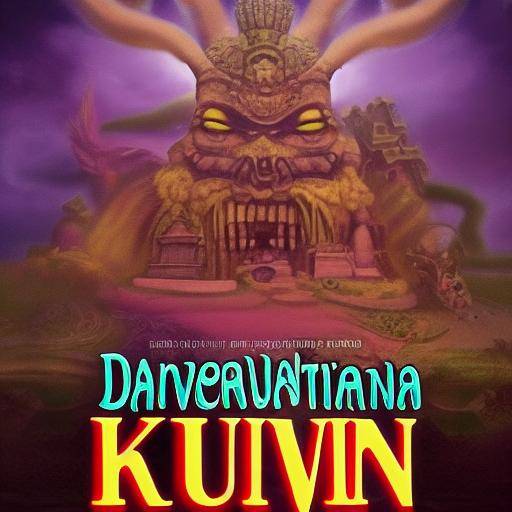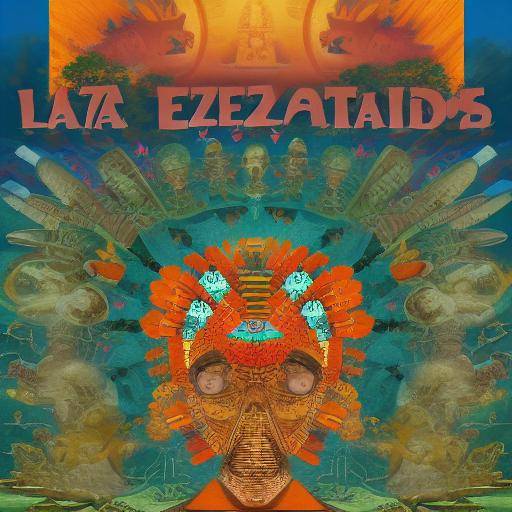
The history of the creation of the world is a theme of great interest in different cultures around the world. For the Aztecs, the cosmovision and pre-Columbian myths played a fundamental role in creating their conception about the origin of the universe and humanity. In this article, we will explore in depth the Aztec vision of the creation of the world, the associated pre-Columbian myths, and its relevance in the culture and history of this ancient civilization.
Introduction
Aztec cosmogony is a fascinating aspect of its cultural heritage. The myths and legends that relate the creation of the world offer a unique window to the understanding of the vision that the Aztecs had of the universe and its place in it. Throughout this article, we will discover the stories about the creation of the Aztec world, explore the pre-Columbian myths that shaped their worldview, and analyze the importance of these narratives in the historical and cultural context of this civilization.
History and Background
To understand the Aztec vision of the creation of the world, it is essential to contextualize its cosmovision in the framework of its cultural history and history. The Aztecs, also known as mexica, established an empire in the Mexican valley during the Mesoamerican postclassic period. Their arrival in the region and their subsequent rise to power were marked by a series of migrations, political alliances and war conflicts.
During their reign, the Aztecs developed a sophisticated religious and mythological structure that influenced all aspects of their daily life. The creation of the world held a central place in its worldview, and its pre-Columbian myths offered explanations about the origin of the universe, nature, gods and humanity. Through religious ceremonies, rituals and practices, the Aztecs honored and celebrated these sacred accounts that provided them with a conceptual framework to understand the world around them.
Analysis in Deep
The in-depth analysis of Aztec pre-Columbian myths reveals the complexity of his vision of the creation of the world. These narratives offer a rich amalgam of symbolism, mythology and tradition, providing a holistic understanding of the connection between the gods, nature and humanity in the Aztec conception of the universe. The influence of these beliefs transcended the religious and perpetuated everyday life, politics, astronomy, agriculture and other fundamental aspects of Aztec society.
Exhaustive examination
In the comprehensive review of the Aztec cosmovision, it is essential to highlight the complexity of its pre-Columbian myths and their impact on society. The influence of these narratives was reflected in ritual practices, political organization, architecture, calendar and the conception of time. The interrelation between the creation of the world, the pre-Columbian myths and the daily life of the Aztecs offers us a unique perspective to understand its worldview and legacy in Mesoamerica's history.
Comparative analysis
By comparing the creation of the world in the context of the Aztec pre-Columbian myths with other cosmogenic traditions, a wealth of similarities and differences emerges that enrich our global understanding of the various visions about the origin of the universe. The exploration of these similarities and contrasts shed light on the uniqueness of the Aztec cosmovision and its relevance in the cultural landscape of the Mesoamerican region.
Practical Tips and Accessible Recommendations
The understanding of the creation of the world according to the Aztecs and their pre-Columbian myths offers us a unique opportunity to appreciate the diversity of cultural and religious expressions in the pre-Columbian world. Its legacy invites us to reflect on the importance of preserving and assessing the traditions and ancestral knowledge of indigenous civilizations. In studying and spreading these stories, we contribute to enriching the appreciation of cultural diversity and to fostering a greater understanding of the different worldviews that have shaped humanity throughout history.
Conclusions
In conclusion, the creation of the world according to the Aztecs and pre-Columbian myths that surround it represent an essential part of its cultural legacy. These narratives offer a unique window to understand the worldview, beliefs and values of this ancient civilization. By exploring and reflecting on these stories, we honor the wealth and depth of the Mesoamerican cultural heritage.
FAQs
1. What are the main Aztec myths about the creation of the world?
The Aztecs had multiple accounts about the creation of the world, highlighting the importance of gods such as Ometecuhtli and Omecihuatl, who were considered the parents of humanity.
2. How did the Aztec pre-Columbian myths of other traditions differ?
The Aztec pre-Columbian myths presented a marked influence of cosmic nature and cycle, in contrast to other traditions that emphasized different aspects of the creation of the world.
3. What was the purpose of preserving pre-Columbian myths in Aztec culture?
Pre-Columbian myths not only provided an explanation of the origin of the world, but also legitimized the social and political structure, as well as the religious practices of the Aztecs.
4. What is the contemporary relevance of the Aztec pre-Columbian myths?
Today, the revitalization and study of Aztec pre-Columbian myths contribute to the preservation of the cultural identity of indigenous communities and the recognition of their legacy in Mexico's history.
5. How have Aztec pre-Columbian myths influenced the current Mexican culture?
The Aztec pre-Columbian myths have permeated various aspects of contemporary Mexican culture, from literature and art to traditional festivities.
6. Where can more resources be found to study Aztec pre-Columbian myths?
There are numerous books, museums and archaeological sites in Mexico that offer resources to study Aztec pre-Columbian myths, as well as academic publications and well-known online sources.
In short, the creation of the world according to the Aztecs and associated pre-Columbian myths invite us to explore the wealth of one of the most fascinating civilizations in Mesoamerican history. His legacy endures as testimony to the spiritual and cultural depth of a society which, despite the passage of time, continues to exert a lasting influence on collective consciousness.

